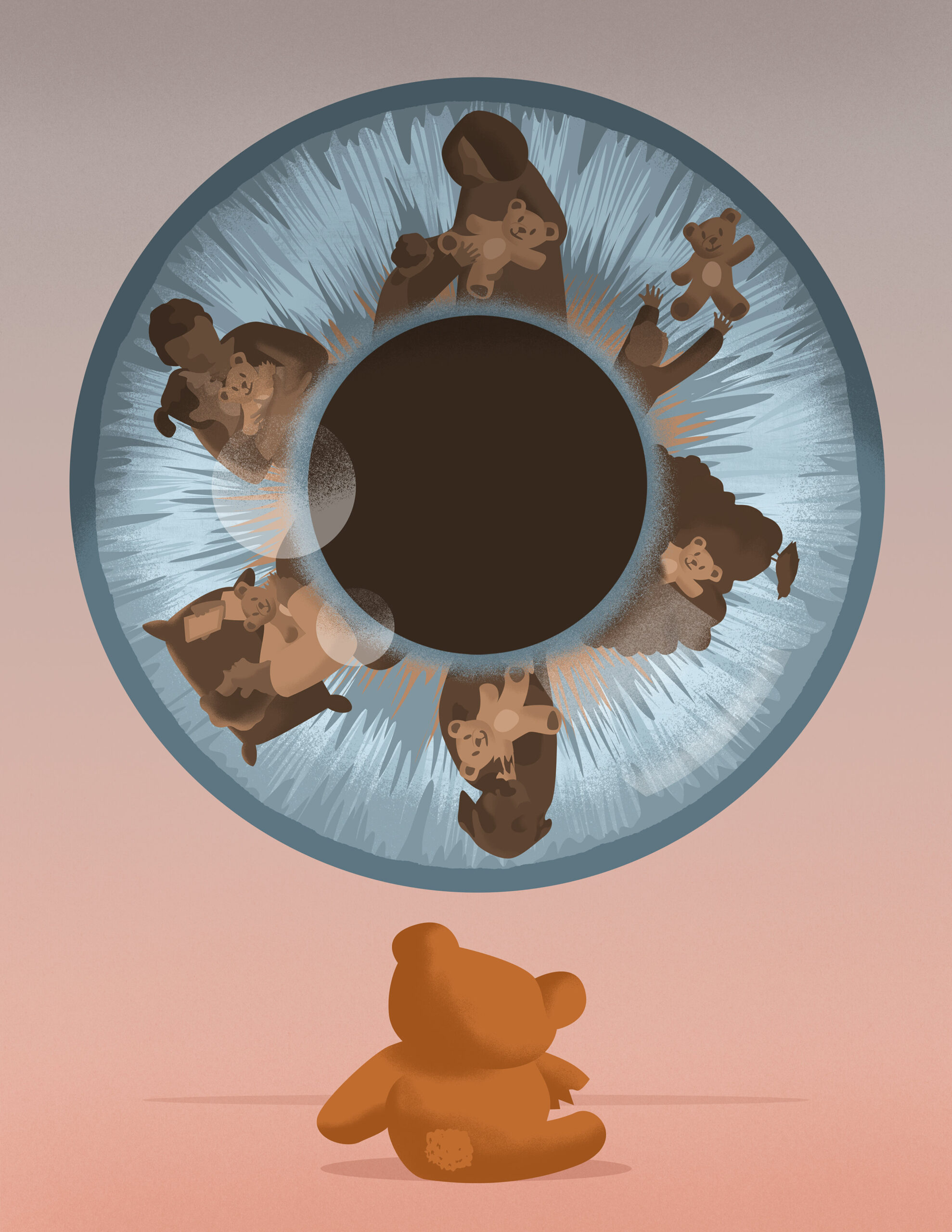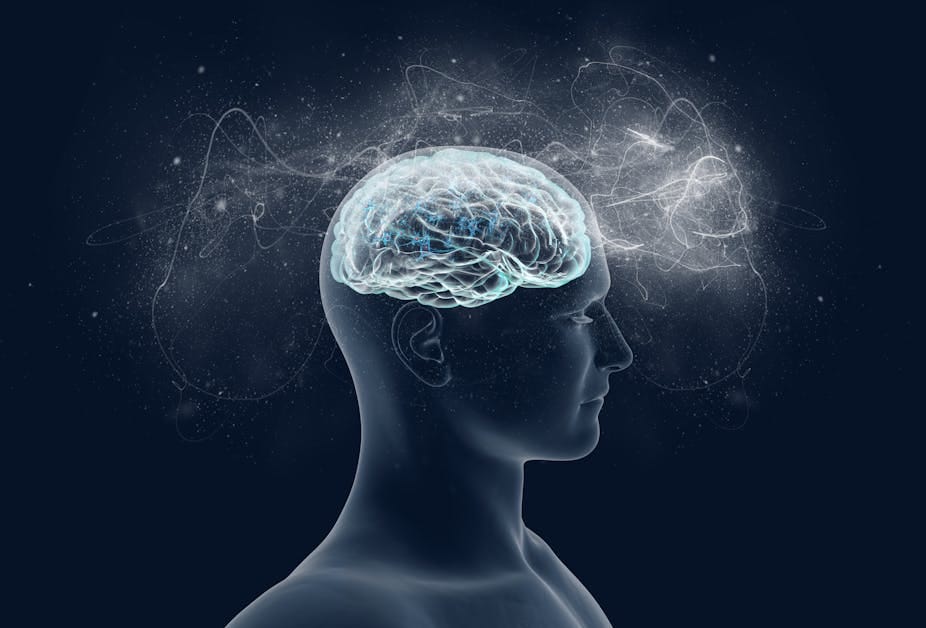What does it mean to remember? For most of us, memory is tied to words: recalling a birthday party, describing a vacation, naming a face, or listing what we ate for lunch yesterday. When psychologists and neuroscientists study memory, they usually rely on these verbal accounts. Participants are asked to describe what they saw, repeat lists of objects, or share details of past events.
But what happens when words fail? How can we study memory in infants who have not yet learned to speak, in patients with brain injuries who have lost the ability to communicate, or in those with advanced Alzheimer’s disease whose language skills have faded? For decades, this question has haunted researchers. Memory has always been thought of as something hidden, accessible only through language—until now.
A groundbreaking study led by Prof. Yuval Nir and his team at Tel Aviv University and the Tel Aviv Sourasky Medical Center offers a new possibility: memory can be measured not through words, but through the movement of our eyes.
The Spark of an Idea
The research team, led by Dr. Flavio Schmidig along with Dr. Daniel Yamin and Dr. Omer Sharon, started with a simple but profound observation. In everyday life, memories often come to us passively. We don’t always summon them with effort; they simply appear. A familiar scent reminds us of childhood. A song on the radio brings back a forgotten love. A sudden sound recalls a scene from years ago.
Traditional memory tests, however, rarely capture this natural process. Instead, they require participants to answer questions—“Do you remember this?” or “Can you list these objects?” But this, the researchers realized, is not how memory works most of the time in the real world. And more importantly, it excludes those who cannot respond with words.
So the team asked themselves: what if we could stop asking people to remember, and instead simply watch how their memory reveals itself naturally?
Eyes as the Mirror of Memory
The answer came from an unexpected place: the gaze. Our eyes are not passive windows. They move constantly, scanning the world, anticipating what comes next. When we know something is about to happen—because we have seen it before—our eyes shift toward the expected location before the event even occurs. This unconscious anticipation might hold the key to unlocking silent memories.
To test this idea, the researchers designed a new memory experiment. They recruited 145 healthy participants and showed them tailor-made animated videos twice. Each video contained a surprising moment—a dolphin leaping from the water, for example. As participants watched, their eye movements were carefully tracked.
The results were striking. On the second viewing, participants’ eyes shifted in advance toward the place where the surprising event was about to occur. Even without being asked, even without uttering a single word, their gaze betrayed their memory. They remembered what was coming.
Memory Without Words
To verify the reliability of this “anticipatory gaze” method, the researchers compared it with traditional verbal recall tasks. Astonishingly, the two matched. The way people’s eyes moved predicted their memory just as accurately as their spoken answers. And crucially, this was true regardless of whether the person could speak at all.
“Our paradigm measures anticipatory gaze completely independent of language,” Dr. Schmidig explained. “With only a camera, we were able to capture the extent someone remembers, in a passive way, closest to our everyday life.”
Even more exciting, with the help of artificial intelligence, a computer can analyze just a few seconds of eye-tracking data and infer whether someone has formed a memory. This opens the door to studying memory in groups who were previously unreachable: babies, individuals with speech loss, or patients with severe neurodegenerative diseases.
Why This Matters
The implications of this discovery ripple far beyond the laboratory. Memory is one of the most precious aspects of being human. It anchors our identity, our relationships, and our sense of time. Yet millions of people live with conditions that rob them of the ability to speak, from Alzheimer’s to traumatic brain injuries. For them, existing memory tests are inaccessible.
This new method could change that. By using only a simple camera—like the one built into every laptop or smartphone—researchers and clinicians may soon be able to assess memory in patients who cannot communicate. For parents and pediatricians, it may reveal how memory develops in infants and young children, offering new insights into the foundations of learning. For neurologists, it could help track the progression of memory loss in Alzheimer’s patients more accurately and gently than ever before.
Perhaps most importantly, this approach restores dignity. Instead of defining memory by speech, it recognizes that memory exists even when words are gone.
The Bigger Picture: Memory as Life
Memory is more than data stored in the brain. It is the invisible thread stitching our lives together. To remember is to be human—to relive a first kiss, to recall the face of a loved one, to learn from past mistakes. When memory falters, life itself feels fragmented.
By finding a way to measure memory without words, researchers are not just inventing a new scientific tool. They are expanding the very definition of what it means to remember. They are offering hope to families who wonder whether their loved one with Alzheimer’s still recognizes them, to doctors searching for better ways to diagnose cognitive decline, and to scientists eager to unlock the mysteries of the developing infant mind.
A Future Written in Our Eyes
The beauty of this discovery lies in its simplicity. No invasive machines, no complex procedures—just a camera, a video, and the watchful eyes of someone remembering. In this quiet exchange between gaze and event, memory reveals itself.
Science often advances by asking daring questions. In this case, the question was simple but revolutionary: what if memory speaks, even when the mouth cannot? The answer, it turns out, is written in our eyes.
As this research continues to grow, we may find ourselves standing on the edge of a new era in neuroscience—one where the silent mind is no longer unreachable, and where every glance tells a story of memory, identity, and life itself.
More information: Flavio Jean Schmidig et al, Anticipatory eye gaze as a marker of memory, Communications Psychology (2025). DOI: 10.1038/s44271-025-00305-7.






